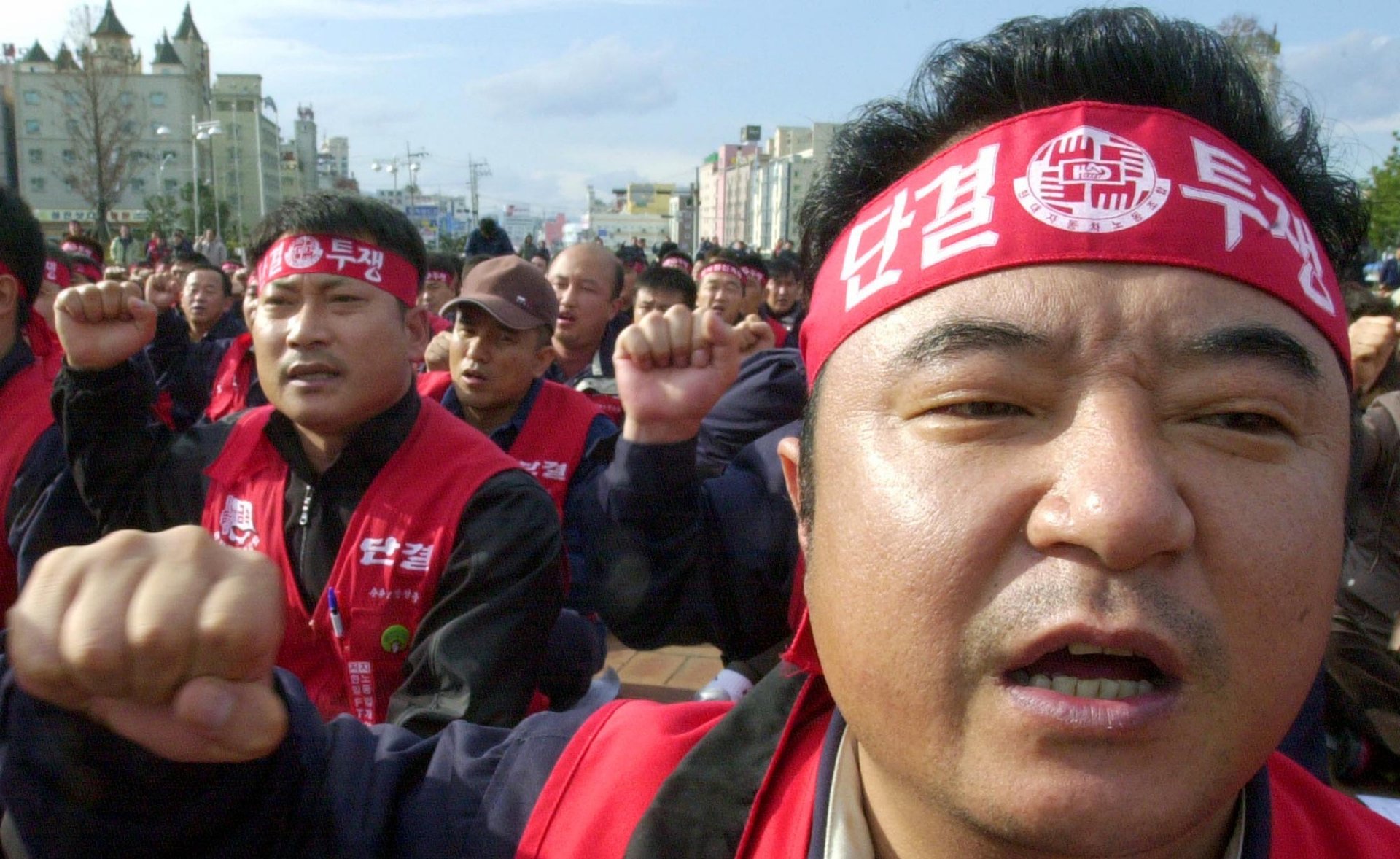Unions are driving Hyundai and General Motors out of South Korea
South Korea’s highly unionized labor force is holding its car makers to ransom, yet again. Workers for the country’s top automaker, Hyundai Motor, and its affiliate Kia Motors have voted to strike, after talks with the management over increased pay and better benefits collapsed. The unions and management now have to enter a mandatory 10-day mediation process involving the country’s labor relations commission.


South Korea’s highly unionized labor force is holding its car makers to ransom, yet again. Workers for the country’s top automaker, Hyundai Motor, and its affiliate Kia Motors have voted to strike, after talks with the management over increased pay and better benefits collapsed. The unions and management now have to enter a mandatory 10-day mediation process involving the country’s labor relations commission.
The Hyundai union’s long list of demands would make auto workers around the world green with envy. Key demands include:
- 130,500 won ($120) increase in basic monthly salary.
- An bonus of eight months’ pay for meeting production targets. (The current bonus is five months.)
- One-off payment equivalent to 30% of Hyundai’s $8.17 billion 2012 profit.
- A 56.25 gram gold medal (worth about $2,400) and a bonus of two months salary for those with over 40 years of service.
- 10 million won for each worker whose children opt not to attend college. (Hyundai pays college tuition fees for workers’ children.)
- Full reimbursement of medical expenses if workers are diagnosed with cancer.
Kia’s union has presented similar proposals. These demands come on top of wages that are already among the highest in the world for the industry. Since 2002, Hyundai workers’ average annual salary has more than doubled to 94 million won. In 2012, the hourly labor costs in Hyundai’s South Korean factories were estimated to be 24,778 won per worker, higher even than in its plants in the US.

Yet despite Korean auto workers’ lavish conditions, strife is a regular feature in the country’s automobile industry. Unions have enjoyed the persistent support and admiration of the public, due to their role in protesting Japanese colonial rule and South Korean dictatorships during the Cold War. Hyundai has faced strikes in all but four of the past 26 years. In 2012, it had its costliest ever work stoppage when a strike halted production of more than 82,000 cars and led to losses of 1.7 trillion won ($1.5 billion). Hyundai executives admit they contributed to the problem by giving in to most of workers’ demands in the early years, when the carmaker was gunning to become a top-five global manufacturer.
The continued strikes have forced Hyundai to shift more of its production overseas. Hyundai already makes more cars at its overseas plants in places like China, the US, India, and Russia than it does in its three assembly plants at home. It has already opened a third plant in China, which takes its production capacity in the country from 600,000 to 1 million units a year (paywall).

Hyundai is not alone in trying to find a way out of the labor mess in South Korea. This week, senior General Motors executives told Reuters that the company is rethinking its reliance on the island nation as an exports hub. One fifth of GM’s global production is based out of South Korea and nearly 80% of the output is exported. GM too faced protests and walkouts this year over contentious wage negotiations.